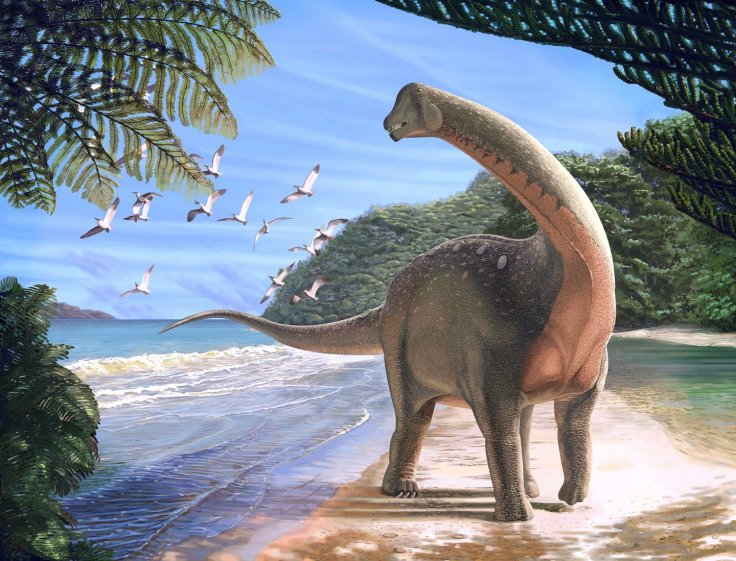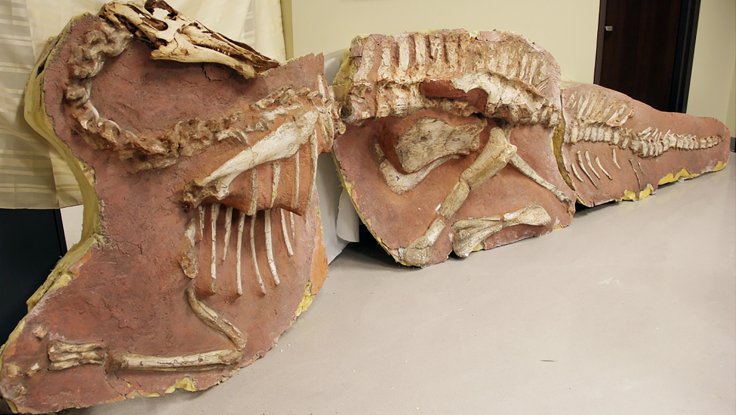
A new theory has claimed that the population of dinosaurs were on a radical decline due to a toxic flower plant much before the asteroid hit the earth.
Scientists have so far believed that about 66 million years ago when a massive asteroid hit the earth, it caused huge destruction that wiped out the entire species from the blue planet including the dinosaurs.
But a new research, published in the peer-reviewed Ideas in Ecology and Evolution, has claimed that the dinosaurs were deep in trouble long before the asteroid hit the earth. The research claims that the dinosaurs became almost an endangered animal, consuming a toxic plant, which they might have failed to identify as a poisonous substance.
The study was done by the psychology professor from University at Albany, Gordon Gallup and his former student Michael J. Frederick, who is now at the University of Baltimore. Both the experts cross-checked the facts behind the extinction of dinosaur's population and claimed that the emergence of the toxic plant is the main reason behind it. They also revealed that these species did not have the ability to associate the taste of certain foods with danger.
The Phys.Org said that "Learned taste aversion", a phenomenon whereby we tend to develop aversion to certain types of food that resemble the food which cause illness. To explain such defense mechanism, Gordon took the example of rats and said, "A reason why most attempts to eliminate rats have not been successful is that they, like many other species, have evolved to cope with plant toxicity."
In addition, he said that apart from the regular food when rats encounter a new food "they typically sample only a small amount; and if they get sick, they show a remarkable ability to avoid that food again because they associate the taste and smell of it with the negative reaction."

According to the researchers, these toxic plants, called angiosperms, used to flourish in the Cretaceous period. Both the experts explained that these plants began to grow developing the toxicity as a defense mechanism. Despite the gastrointestinal distress, such as bloating, cramping, abdominal distention and pain, dinosaurs continued to eat these plants. It is still not clear when these plants started developing toxicity, but they believe that it first appeared in the fossil record way before the asteroid hit the earth and right before the dinosaurs began to vanish.
Gallup and Frederick further studied whether birds and crocodiles, considered to be the descendants of dinosaurs, developed any taste disinclination. After an in-depth analysis, they found that while the birds had developed aversion to the visual features of whatever food made them sick, they understood the fact they should not eat such food in order to live longer.
On the other hand, crocodiles as a species did not develop any learned taste aversion when they were fed different types of meat, including some slightly toxic food.
Gallup said that even though, the asteroid played a factor behind the extinction of dinosaurs, "the psychological deficit which rendered dinosaurs incapable of learning to refrain from eating certain plants had already placed a severe strain on the species."
The prevailing view of dinosaur extinction due to the asteroid impact implies that the disappearance of dinosaurs should have been sudden and the effects should have been widespread. But the new evidence clearly shows just the opposite, argue the researchers. "Dinosaurs began to disappear long before the asteroid impact and continued to gradually disappear for millions of years afterward," the researchers noted.









